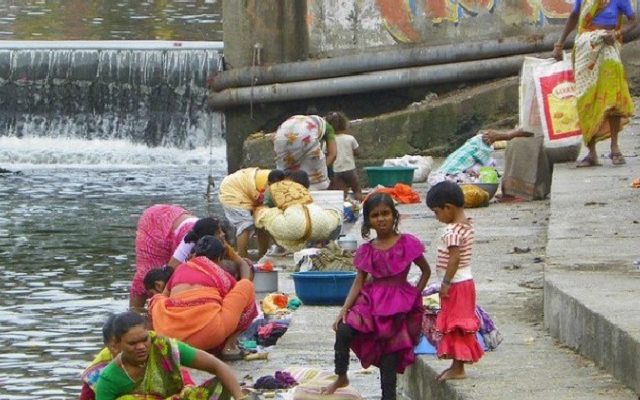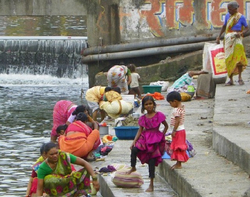BLOG: Water-Energy-Food Nexus – Applying an Inter-Sectoral Lens to Meet Growing Needs

High paced urbanisation along with population and economic growth has put tremendous pressure on existing resources especially water, energy, and food. The decision-makers are facing an increasing number of trade-offs and potential conflicts among these resources that have complex interactions. Cities, as the engines of growth, are facing challenges in ensuring sustainable access to land, resources and basic services for their citizens. With climate change adding to the existing pressure, there is a growing realisation of the importance of a water-energy-food (‘WEF’) nexus approach.
The need for innovative approaches and strategies in meeting the resource demands and in addressing the interdependencies between sectors has become evident. The web of interdependencies and complexities between water, food and energy requires smart and well-informed decisions, taking into account the impact on each of the involved sectors and the implications for different stakeholders, ranging from policy-makers to communities and others.
However, in reality, inter-sectoral approaches are challenged by fragmented sectoral mandates and responsibilities. There is a lack of coordination (horizontally and vertically) and existing inconsistencies between rules and regulations which often lead to counterproductive incentives. If water, energy and food security are to be achieved simultaneously, political and administrative decision-makers need to consider the impact of their decisions on the involved sectors, including conflicting demands.
Addressing resource pressures in the ‘backyard of Mumbai’
It is in one such place that ICLEI-Local Governments for Sustainability, South Asia attempted to pilot a project which could showcase the importance of inter-linkage and multi-sectoral engagement to address some local challenges, using the nexus approach. The pilot was implemented at Nashik, located in the north-western part of the state of Maharashtra. The city, also known as the ‘Backyard of Mumbai’ and the ‘Wine Capital of India’ contributes to the economy of the state through its vegetable and fruit supply to Mumbai and the rest of the country.
Primarily agricultural in nature, the city consumes large amounts of pumped water (surface water as well as groundwater) for farming. Energy intensive groundwater pumping has led to a decreased water table and along with it increased energy consumption – a cycle which continues to prevail.
With the objective of applying an intersectoral lens to sectoral approach, four initiatives were implemented which included evaluating the performance of agricultural pumpsets, a groundwater recharging system, mapping of local biogas potential and promoting agro-education through school children.
This was followed by training and awareness-raising among farmers on the most appropriate selection of pumps, their operation and maintenance, and the economic gains from better energy efficiency resulting in lower utility bills. Further, the opportunity for utilising the slurry from bio-gas for ferti-gation was explored.
The implementation of the initiatives resulted in the adoption of basic measures in an integrated manner with the aim to address multiple issues in one go. Thus, an interlinked systemic approach included the installation of energy efficient pumps to reduce electricity consumption, groundwater recharging to maintain the water table, and the development of biogas to reduce a dependence on fossil fuels and energy inputs for agriculture in the ward area. The importance of resource efficiency was propagated to a wider public through the involvement of school children.
Connecting decision-makers across boundaries
During the entire course of project implementation, stakeholders from sectors (horizontal) as well as various levels of governance (vertical) were coordinated with to bring a common understanding. Multi-level governance was achieved through the involvement of stakeholders from the local, district and state level. It was realised that resource and ecosystem boundaries often transcend administrative boundaries and hence require intensive coordination across actors and institutions. Thus, it will not be an exaggeration to say that creating openness to the nexus approach is crucial.
Efficient resource usage depends on the cooperation of all departments that use the given resource or are related to its management. But since each institution is traditionally used to working in isolation – without considering the repercussions or possibilities of collaboration with other departments or actors – efforts are needed to engage them in fruitful discussions.
Also, political commitment plays an important role for any project implementation at the local level in India. To ensure successful implementation of the project, it is necessary to involve the political and administrative wings in all major decisions of the project. This ensures their continuous support to the activities as well as critical practical local knowledge about implementation potentials and pitfalls in different parts of the city.
Initiatives with a WEF nexus approach have a great potential to truly address and change the way institutions and society conceive its water usage, energy and food production. While change is often gradual, initial results of understanding the nexus approach can be demonstrated to motivate the community and institutions to adopt the change.




